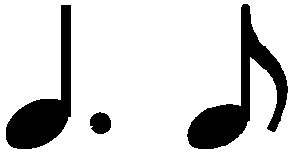



Issues : Dotted rhythms and triplets
|
b. 5-13
|
composition: Op. 27 No 1, Nocturne in C# minor
..
In bar 5 in GE (→FE→EE) the semiquaver in the figure See the chapter devoted to this topic in: Jan Ekier, Introduction to the National Edition, Editorial Issues. category imprint: Interpretations within context issues: GE revisions , Dotted rhythms and triplets |
|||||
|
b. 15-26
|
composition: Op. 27 No 1, Nocturne in C# minor
..
In bar 15 in GE (→FE→EE), the semiquaver in the figure category imprint: Interpretations within context issues: GE revisions , Dotted rhythms and triplets |
|||||
|
b. 29-36
|
composition: Op. 27 No 1, Nocturne in C# minor
..
In bars 29-36 (and further ones – cf. bars 48, 50, 51 & 53-62), GE has the quaver of the R.H. part placed directly over the last note of the 2nd L.H. triplet. In the editors' opinion, this is not in line with Chopin’s intentions; instead, it reflects the manner of the GE engraver. category imprint: Graphic ambiguousness; Interpretations within context; Differences between sources issues: GE revisions , Dotted rhythms and triplets |
|||||
|
b. 37-45
|
composition: Op. 27 No 1, Nocturne in C# minor
..
In bars 37-42 and 44-45 in GE (→FE→EE) the semiquaver of the double dotted rhythm in the right hand was moved beyond the third note of the second triplet of the accompaniment. This misleading, inauthentic notation was also used for the double dotted rhythm in bar 49 and in the notation of dotted rhythms throughout the Nocturne - cf. bars 5-13. See also: the note to bars 29-36 and the chapter devoted to that topic in: Jan Ekier, Introduction to the National Edition, Editorial Issues. category imprint: Interpretations within context issues: GE revisions , Dotted rhythms and triplets |
|||||
|
b. 48
|
composition: Op. 27 No 1, Nocturne in C# minor
..
Just like in bars 29-36, in bar 48 of GE the rhythm category imprint: Interpretations within context; Differences between sources issues: GE revisions , Dotted rhythms and triplets |



 is moved to after the third note of the triplet in the accompaniment, similarly in bars 9, 11 & 13. This inauthentic notation, misleading for the performer, was used throughout the Nocturne – cf. bars
is moved to after the third note of the triplet in the accompaniment, similarly in bars 9, 11 & 13. This inauthentic notation, misleading for the performer, was used throughout the Nocturne – cf. bars 







 is irregularly presented against the triplets.
is irregularly presented against the triplets.